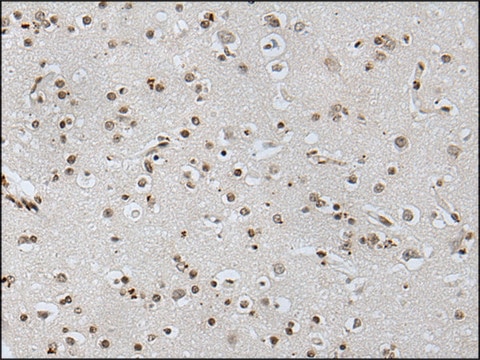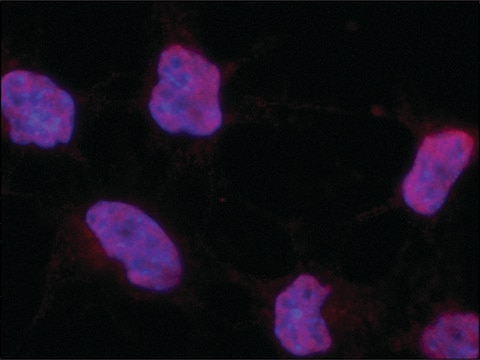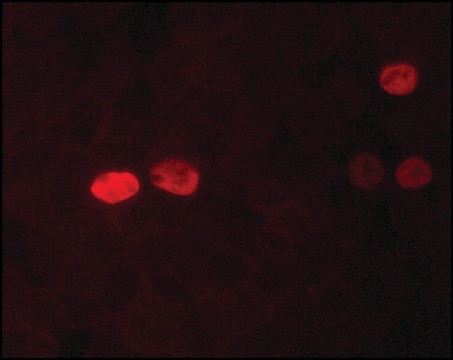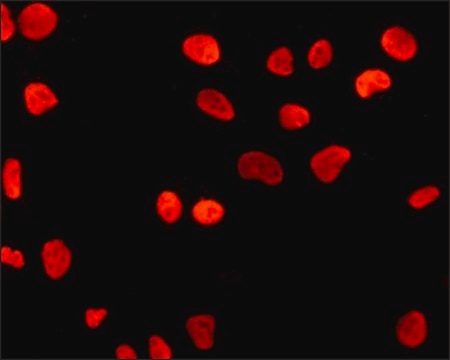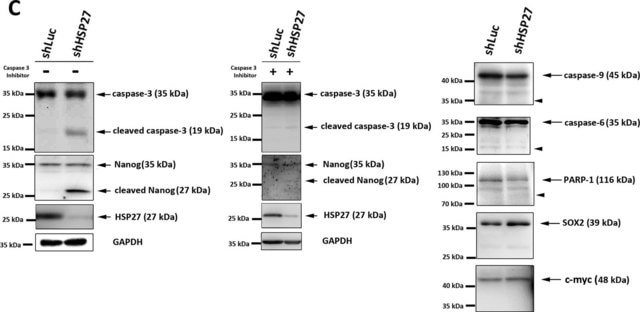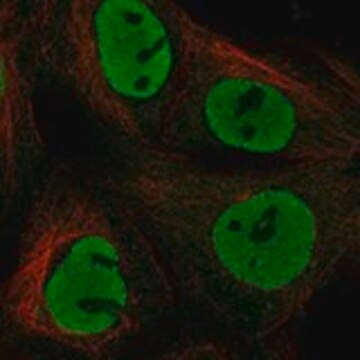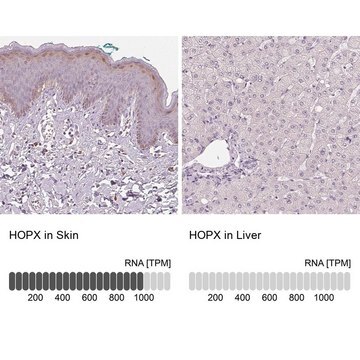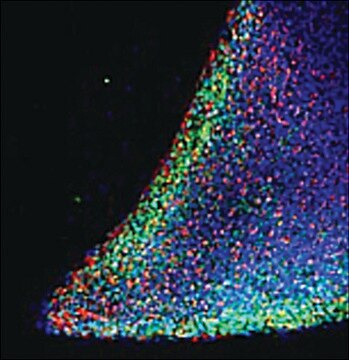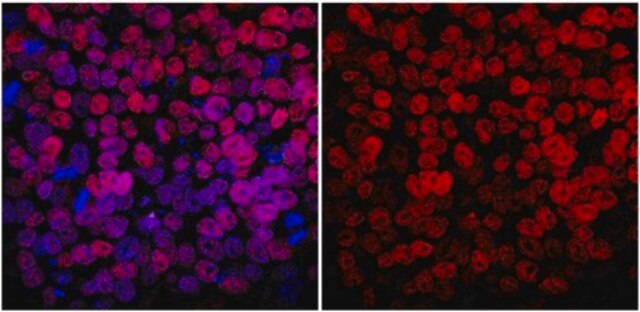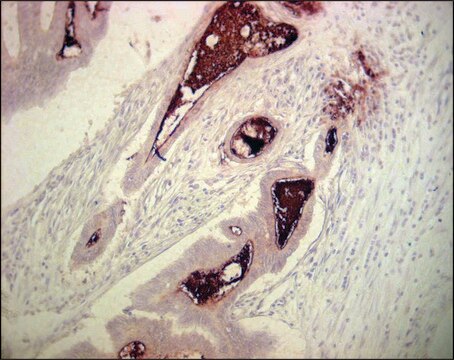SAB3500389
Anti-NANOG antibody produced in rabbit
affinity isolated antibody, buffered aqueous solution
Synonym(s):
Anti-NANOG homeobox
About This Item
Recommended Products
biological source
rabbit
Quality Level
conjugate
unconjugated
antibody form
affinity isolated antibody
antibody product type
primary antibodies
clone
polyclonal
form
buffered aqueous solution
species reactivity
rat, mouse, human
technique(s)
immunofluorescence: suitable
immunohistochemistry: suitable
indirect ELISA: suitable
western blot: suitable
NCBI accession no.
UniProt accession no.
shipped in
dry ice
storage temp.
−20°C
target post-translational modification
unmodified
Gene Information
human ... NANOG(79923)
Immunogen
Features and Benefits
Linkage
Physical form
Disclaimer
Still not finding the right product?
Give our Product Selector Tool a try.
recommended
related product
Storage Class
10 - Combustible liquids
wgk_germany
WGK 2
flash_point_f
Not applicable
flash_point_c
Not applicable
Certificates of Analysis (COA)
Search for Certificates of Analysis (COA) by entering the products Lot/Batch Number. Lot and Batch Numbers can be found on a product’s label following the words ‘Lot’ or ‘Batch’.
Already Own This Product?
Find documentation for the products that you have recently purchased in the Document Library.
Our team of scientists has experience in all areas of research including Life Science, Material Science, Chemical Synthesis, Chromatography, Analytical and many others.
Contact Technical Service